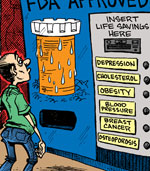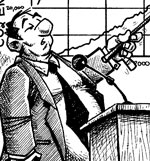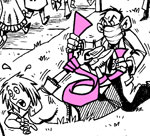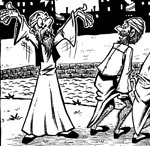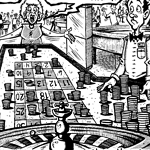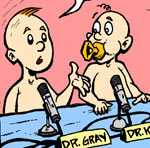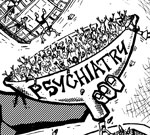Some Insomnia Symptoms Are Not What You Would Expect
| Share on Facebook | Share on Twitter | Share on Google+ |
If you have stared at the clock all night long, or if your racing thoughts kept from getting to sleep for hours, you don't have to have anyone tell you that you have insomnia. Sometimes the most serious insomnia symptoms, however, occur in people who don't even know they aren't getting enough sleep.
When some people who have serious issues with insomnia are first asked by their doctors about their sleeping habits, they usually answer with something on the lines of, "My sleep is fine. I just don't get enough of it." But their reality is that it is very common for people who have been diagnosed with certain kinds of insomnia, especially sleep apnea, to find the time for bed rest. The problem with these forms of insomnia is that resting in bed is usually not restful.
Subtle Symptoms of Insomnia
Some of the subtle symptoms of insomnia are things you would never expect, such as:
- Having to get up to urinate in the middle of the night even though you do not have a bladder or (in men) prostate problem.
- Waking up in the morning with a dry mouth.
- Signs that you tossed and turned, such as bed linens kicked off the bed even though the bedroom temperature was comfortable.
These are classic symptoms of insomnia in snorers. Snoring actually makes people need to go to the bathroom. When you snore, the muscles in your diaphragm have to work harder to pull air into your lungs. When your diaphragm presses down on your heart, your blood pressure goes up. When your blood pressure goes up, your kidneys increase the rate at which they remove water from circulation to try to your blood pressure back down to normal.
Waking up in the morning with a dry mouth is a sign that you have been breathing through your mouth. This can happen when you have a stuffy nose, or when you have some injury or defect in your nose, such as a deviated septum. The constant flow of air over your lips and tongues dries out your mouth and gives your whole mouth a cottony feel.
Kicking off the covers can be a sign of sleep apnea, a kind of breathing obstruction that is relieved by changing position, or restless legs syndrome. Snoring, snorting, sleep apnea, and restless legs syndrome may totally interrupt the sleep of your bed partner, but they may not ever make you fully conscious. Since you never completely wake up, you only have the sensation of still feeling tired even if you have spent eight, nine, ten, or more hours in bed. Sleeping pills, by the way, make all of these symptoms worse.
Can Insomnia Symptoms Result in Death?
And if you never get these problems remedied, the effects of insomnia can even include potentially fatal insomnia symptoms:
- High blood pressure that does not respond to medication,
- Type 2 diabetes after appetite-induced weight gain,
- Fluid retention in the ankles and wrists due to congestive heart failure,
- Heart attack, or
- Stroke.
Serious Effects of Insomnia
How can something as simple as insomnia have such dreadful consequences? About 90 per cent of people who snore have insomnia. About 50 per cent of people who have insomnia snore. The breathing obstructions that cause snoring also cause alterations in oxygen supply and blood pressure that can devastate the cardiovascular system. And because the brain does not have a chance to process appetite signals from your fat cells, you can wake up wanting to eat, eat, and eat some more.
None of these symptoms exclude the more obvious symptoms of insomnia such as grouchiness, poor memory, diminished attention span, and accident proneness. But if you have both insomnia and snoring, you need to give attention to keeping your airways open to avoid potentially fatal insomnia symptoms.
Selected References:
Budhiraja R, Budhiraja P, Quan SF. Sleep-disordered breathing and cardiovascular disorders. Respir Care. 2010 Oct;55(10):1322-32; discussion 1330-2. Review.
Krakow B, Ulibarri VA, Romero EA. Patients with treatment-resistant insomnia taking nightly prescription medications for sleep: a retrospective assessment of diagnostic and treatment variables. Prim Care Companion J Clin Psychiatry. 2010;12(4). pii: PCC.09m00873.
-
Skin CareMen Skin Care
-
Free ResourcesFree eBooks
-
When it comes to eating right and exercising, there is no "I'll start tomorrow." Tomorrow is disease.Terri Guillemets
-
Featured Health Supplement
 If you find a product that is as effective as Total Balance, and is better value for money, let us know and we will give you a refund equivalent to your entire purchases of Total Balance…retrospective.
If you find a product that is as effective as Total Balance, and is better value for money, let us know and we will give you a refund equivalent to your entire purchases of Total Balance…retrospective.
-

